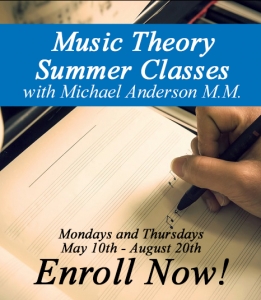
Great Books Program: Asynchronous Mode FAQs
1.) What is the meaning and difference between synchronous vs. asynchronous discussions?
Asynchronous means that classes are not listened to as they occur, so are not live as in the synchronous mode; they are recorded for listening to at a later time. Sun is Greek for “together”; Khronos means “time.” So sun-khronos (or synchronus in Latin) simply means together in time—existing or occurring at the same time; A adds a negative: not.
2.) Are the asynchronous Great Books classes the same 2-hours in length?
Yes, though sometimes a little longer. However, they are composed of selected portions of the discussions of our Great Books Program readings from among the many years we have conducted them, chosen for their intellectual quality, profundity, liveliness, insight, humor, and other desirable qualities. They include a total of two hours of excellent discussions from past classes (a few are a few minutes longer to include the entire discussions selected). Listening to them is substantially equivalent to the experience of students who are in the live classes but who choose not speak much, or at all in a class, except that these classes are all compiled from among the best classes, making them all consistently worth listening to from beginning to end..
3.) When may I listen to the asynchronous classes?
Anytime you wish, 24/7, 365 days a year, as they are recorded and available online. Asynchronous Great Books students are given a password to access them.
4.) How many readings and classes are included in one academic year of asynchronous classes?
30 – the same ones as in the synchronous classes. For over two decades, we have begun each Great Books class with a great poetry reading, selected to relate to the Great Books reading. These are all included in the asynchronous mode as well.
5.) How long would I have to complete an asynchronous Great Books academic year of classes?
Two years, with extensions granted for good cause. Most students will complete them in under one year.
6.) May I complete the 30 asynchronous Great Books classes at more than one per week, or over the summer?
Yes. The readings, writing, study and scholarly work is the same as in the synchronous mode, but the pace is flexible – up to the student – however, to submit/complete a semester in less than three (3) months, requires the explicit written permission of the Academy.
7.) What is the difference in the writing assignments between the synchronous and asynchronous modes?
The questions for each Great Books reading in the asynchronous mode are the same as in the synchronous mode, except that we have added at least one question that is related closely to the discussion selections we have made, enabling us to evaluate the attention the students give to the discussions listened to.
8.) May I contact Great Books moderators if I am enrolled as a Great Books student taking the asynchronous mode?
Yes. All Great Books students may contact any of our Great Books moderators via email or phone and may also schedule live online-classroom assistance. Our staff are also available to all of our Great Books students.
9.) What are the advantages of the asynchronous mode?
As mentioned above, the asynchronous mode, which is now a very common component in online courses from colleges and universities, adds a class delivery option for students: who work when we have the live classes; or who live in time zones when it is not feasible to attend the live classes; or in the Southern hemisphere; or who need or prefer to continue their studies over the summer or Christmas breaks; Juniors, seniors, college students and adults with fewer available years to study and less time; or who wish to advance in their studies more quickly, or more slowly perhaps due to learning difficulties, the ill, those with health considerations (such as covid-19); those who missed a significant number of live classes; all of these students may not be able to attend the fixed class times of the synchronous classes. They may also begin the asynchronous classes at any time of the year, and may concentrate on them like block-learning classes. So overall the asynchronous mode is simply more flexible to suit the various needs of many students- the same reasons asynchronous classes in higher education have increased dramatically. Additionally, the 2-hour classes selected are among the most excellent classes, selected from our extensive archives of our Great Books Program classes.
10.) What are the advantages of the synchronous mode?
Most students prefer live classes because they engage the active or agent intellect more fully, and they may ask questions and participate in the weekly discussions directly and immediately. Synchronous students are also more connected to other students and make friends with them easily. The live classes also follow the traditional academic year, and so often harmonize with students’ other studies and schedules of other family members well.
11.) May I mix and match classes from the two modes?
Yes, and no. All of our Great Books students are welcome to attend any live Great Books classes, provided they do not exceed the maximum of twenty students per class. The way we assure that is by having the students ask/email in advance if there is room in a live class so that they may plan on attending it, or, they may simply show up for the class and find out then. Conversely, synchronous Great Books students may request access to a recorded class, and are encouraged to do so if they miss a live class or know in advance they will be missing a class.
12.) May I switch from asynchronous to synchronous modes of Great Books class delivery, or the reverse?
Yes, provided that if the switch is to the synchronous mode the desired class time has available room (20 students maximum). In either case, all the same Great Books readings, written work and semester finals must be completed and submitted to earn a passing grade. Requests to switch modes is done informally, via email.
13.) Are Final Exams the same in both modes?
Yes. Great Books students may request either oral or written final exams. However, as the Orals are normative and are scheduled in mid-December and mid-May, it will often happen that students in the asynchronous mode complete their readings and written work at other times of year when Orals are not scheduled. In that case, they may request the written final exam rather than wait for Orals. Additionally, they may request an oral exam to be scheduled for them individually, which will normally be scheduled promptly. A few of our Great Books students also attend schools that ask for written finals, a request with which we are ordinarily happy to comply. Of course, the decision as to the type and timing of final exam for each semester is ultimately up to the Academy.
14.) How is grading determined in the asynchronous mode?
For students in the high school track: Essays – 2/3rds of the semester grade (1/3rd each); Oral exam – 1/3rd.
For students in the College track: Weekly papers – 50% of semester grade; Essays: 25% (12.5% each); Oral Exam- 25%
15.) Are the moderators the same in both modes?
Our two moderators (aka tutors) per class, rotate fairly often in and out of our Great Books class schedule as many of them are also teaching at various colleges and universities with differing schedules, so our Great Books students usually get to join discussions with all of them at some points or other during their Great Books Program years. This is true of the recorded classes as well, which also include some of our moderators from years past, one or both of whom are Ph.D.’s in a field related to the reading.
16.) Where may I read about the high school and college credits one earns by doing the Great Books Program?
The various high school and college credits for the Great Books Program are detailed elsewhere under the Great Books Program tab and in the short video of that title.
17.) What is the tuition? Is there a difference between the two modes of Great Books class delivery?
The tuition is exactly the same in either mode, for each of the Great Books tracks, since the required elements of the synchronous mode are the same as the asynchronous mode: the Great Books readings; the 2-hour class per reading; Great Books Study Guides; writing assignments; two essays per semester; final exam. The writing assignments, essays and final are all graded by the same group of graders and/or moderators. The high school track does not require the written assignments, in either mode. The online enrollment form allows one to select either the synchronous or the asynchronous mode for either of the Great Books tracks. The 5% payment-in-full discount is also available for the asynchronous mode, as is the family discount.
[Tuition subject to change without notice.]




